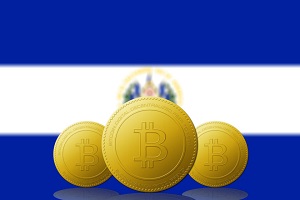Will El Salvador’s Bitcoin Adoption Cut Remittance Costs?
El Salvador’s crypto adoption was not a bluff. The South American country has already went underway with the plan, adopting Bitcoin as parallel crypto tender. Things have been going great so far, with over 200 special ATMs installed already to help with Bitcoin adoption. The only thing that bugs most countries is if the Bitcoin adoption cuts remittance cost in the country.
The Central Bank of El Salvador is curious to see if Bitcoin cuts the cost of remittances, which is a major source of income for millions. The move to Bitcoin as parallel legal tender in El Salvador will go forward in September, so we won’t wait long to see what happens.
Already Touted as a Way to Facilitate Remittance Payments
President Nayib Bukele has long touted Bitcoin as a way to facilitate remittance payments from El Salvador citizens living abroad. Everyone’s closely watching how the situation develops. If the cost of remittances drops significantly, there’s no question that other countries may join the Bitcoin fray.
Many believe that the experiment will fail. Banks and financial institutions have warned El Salvador’s president of the consequences of such as move, but if it cuts remittance cost, it will surely raise the eyebrows of neighboring countries. Argentina and others are interested in adopting Bitcoin as legal tender, and low remittance cost is something everyone is looking forward to.
Regional development bank CABEI is offering its support to El Salvador in implementing the cryptocurrency. The World Bank declined help, citing transparency and environmental drawbacks, but we all know what the real reason is. Other central banks in South American such as Guatemala and Honduras have not banned the use of cryptocurrencies, so it’s safe to say that South American is currently a Bitcoin hotbed.
A Large Slice of Remittance in Crypto
Around 1% of the global crossborder remittance volume is currently in crypto. That number is expected to grow soon. The projected annual remittances in crypto should hit $500 billion soon. Thanks to Bitcoin, sending money across borders will be much faster and cheaper, especially if more countries adopt it like El Salvador.
At the moment, CABEI is focused on offering technical assistance to El Salvador’s government in developing legal framework that’ll allow Bitcoin adoption. The laws must stick to strict anti-money laundering protocols so everything’s fair and square.
El Salvador has decided to navigate uncharted territories in a controversial move that may boost the country’s flailing economy. With the World Bank rejecting the chance to help, the country’s president struck financial organizations where it hurts the most. He announced the adoption of Bitcoin as parallel legal tender, in that way reducing El Salvador’s dollar dependence.
He was highly criticized and under pressure from foreign countries, but proceeded to go with the plan. With the move taking place in September, we’ll have a chance to learn if crypto adoption as parallel legal tender is possible, and if it cuts remittance costs. If it does, we have no doubt that other countries will line up to adopt Bitcoin.








